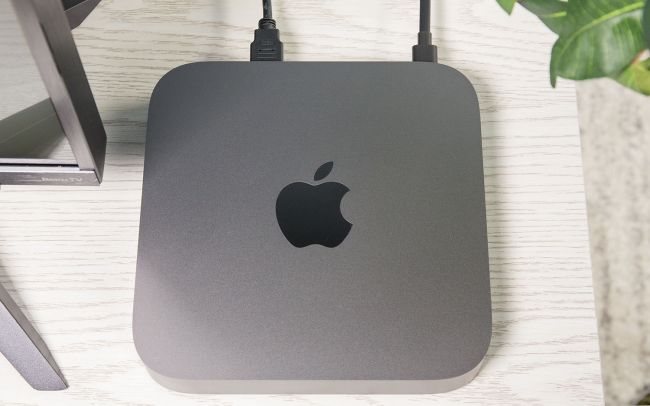First Apple Silicon benchmarks leak — and Intel should be worried
Leaked benchmarks from Apple's Developer Transition Kits have popped up online

Last week at WWDC, Apple spelled out its plans to move to its own ARM-powered chips for future Macs. And now the first details surrounding the new Apple Silicon chips' performance have surfaced by way of leaked benchmarking scores, giving us an idea of what to expect from future Apple hardware.
As part of the move to ARM chips, Apple is distributing Developer Transition Kits (DTKs) to developers, with an eye toward helping them get their apps ready for the new Apple Silicon Macs. These kits were released under the condition that developers sign confidentiality agreements that would prevent recipients from disclosing details about their performance — but that didn’t stop benchmarks from hitting the Internet.
- macOS Big Sur: What's coming to your Mac this fall
- Everything you need to know about Apple Silicon Macs
- Plus: iPhone 12 will ship without charger — but there's good news
French journalist Pierre Dandumont posted a link to Geekbench, where a list of benchmark scores averaging around 800 for single-core machines and 2600 for multi-core. Comparatively, the $999 2020 MacBook Air scored 1005 and around 2000 with both single-core and multi-core units respectively.
Y a des tests du DTK Apple ARM sur Geekbench, via Rosetta. https://t.co/PSZ2rEjNwu ~800 en single core, ~2500 en multicore. Un MacBook Air 2020 en Core i5 en natif fait ~1200 ~3500 dans le même test. Pas mal pour du virtualisé. pic.twitter.com/Py8tlCzSz6June 29, 2020
For 13-inch MacBook Pro scores included in the benchmarking results, systems using macOS 10.15 Catalina with an Intel Core i5-1038NG7 scored around 1,200, with multi-core setups snagging 4,400 without the use of emulation. Compared to a 2018 Mac mini (single core of 1,015 and multi-core score of 5,275) on native hardware, these scores aren't too far off the mark for older systems.
The benchmarking tests were performed by way of virtualization via Apple's Rosetta 2 emulator for an approximation of Intel's x86 processors. As such, these benchmark scores are based on non-native hardware, with sizable potential hits to performance. It’s also important to keep in mind that these kits weren’t created with achieving the most impressive benchmark in mind.
Each DTK distributed to app creators includes four cores, and was originally offered as a means for developers to perform important port work. As such, they're powered by A12Z chips. The upcoming ARM Mac products will certainly feature much more powerful setups in terms of efficiency, and in turn, benchmark scores.
Apple has yet to confirm what type of performance its consumer chips will end up featuring, as the company hasn't revealed any final specs just yet. It’s also important to remember that these are leaked numbers, and while it’s highly likely several developers broke confidentiality agreements to provide them, there are still plenty of unknown variables surrounding them.
Sign up to get the BEST of Tom's Guide direct to your inbox.
Get instant access to breaking news, the hottest reviews, great deals and helpful tips.
During last week’s Worldwide Developer Conference, Apple CEO Tim Cook announced that his company would ship its first Silicon Mac by the end of 2020, though there's no official release date for the hardware just yet. As a result, analyst Ming-Chi Kuo expects the current 13.3-inch MacBook Pro to be discontinued, with all new Macs will featuring ARM processors beginning in 2021.
Brittany Vincent has been covering video games and tech for over 13 years for publications including Tom's Guide, MTV, Rolling Stone, CNN, Popular Science, Playboy, IGN, GamesRadar, Polygon, Kotaku, Maxim, and more. She's also appeared as a panelist at video game conventions like PAX East and PAX West and has coordinated social media for companies like CNET. When she's not writing or gaming, she's looking for the next great visual novel in the vein of Saya no Uta. You can follow her on Twitter @MolotovCupcake.

